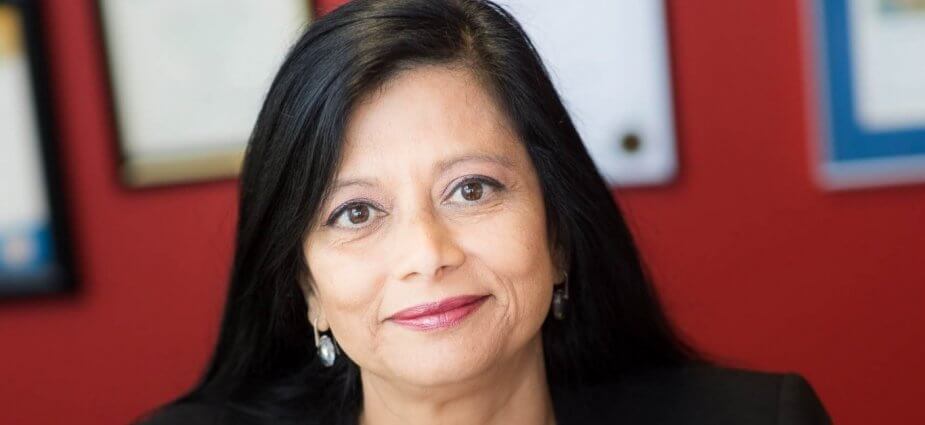Fierce advocate of women’s health, migrant, mother, and former marathon runner, Professor Jayashri Kulkarni AM, Director of the Monash Alfred Psychiatry research centre (MAPrc), has been recognised in this year’s Queen’s Birthday Honours.
Professor Kulkarni is one of many notable staff, alumni, friends and supporters of Monash, that has been recognised in the annual Queen’s Birthday Order of Australia Honours list. Her world first research on the relationship between women’s hormones and mental illness has led to new and improved treatments for conditions such as schizophrenia and depression.
Growing up in Melbourne as an Indian migrant in the 1960s, and studying medicine at Monash University in the 1970s, when fewer than one in three students were female, helped instil the strong sense of empathy and social justice that inspired her work.
The White Australia Policy was still in force when Professor Kulkarni’s family became the second Indian family to migrate to Melbourne in 1961. Professor Kulkarni recalls that, “at this stage there were probably some people with Italian backgrounds and Greek backgrounds but not very many Asian migrants at all.”
Working as a young Registrar at the former Royal Park Psychiatric Hospital, Professor Kulkarni was drawn to the plight of mothers who had developed mental illness after giving birth. “I got to meet women who had been institutionalised for a long time and they told me about the fact that they had children,” she says. “The psychosis had happened post-partum and it hadn’t improved.”
This led to a distinguished career investigating the relationship between hormones at varying life stages and women’s mental illness. World-first estrogen treatments for psychosis and other mental health conditions have been developed from this research, which began in the late 1980s. “There’s a better understanding of mental ill health, but I think what we need is more effective treatment without adverse effects,” Professor Kulkarni says. “The better your treatments are, the easier the stigma is to dispel.”
Professor Kulkarni, who has two daughters with her neurologist husband, Associate Professor Ernie Butler, insists her work is a team effort. “It’s not just about my work; it’s about a number of research programs that the staff here are undertaking,” she says.
“When you make even a little difference in somebody’s life, and just improve the quality of their life just a tiny bit, it is so satisfying. It also spurs you on to think, what’s next? It’s always about not settling. If a person is able to get a bit better, but still not well, that doesn’t mean that you stop. You then try to find the next thing that you can do.”
Readers also enjoyed this story about Reconciliation Award.












